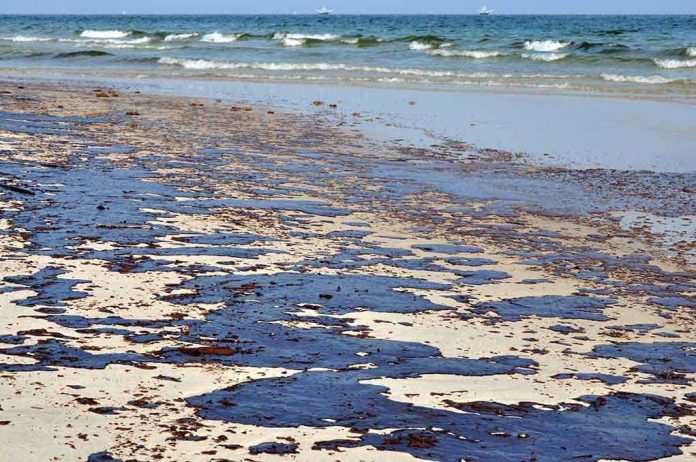
How does a pristine creek, vital to a legendary river restoration project, recover when 3,000 gallons of fuel suddenly spill into its waters?
At a Glance
- A tanker truck crash led to a significant fuel spill in Washington’s Indian Creek.
- The spill threatens the recently restored Elwha River salmon habitat.
- Local tribes and state agencies are leading cleanup and environmental assessments.
- Governor Ferguson calls the situation “devastating” and monitors the response closely.
A Crash with Major Consequences
On a seemingly ordinary Friday morning, July 18, 2025, a Petro Fuel tanker truck decided it was time to exit Highway 101 in the most dramatic fashion. It veered off near mile marker 238.7, overturned, and introduced 3,000 gallons of gasoline and diesel to Indian Creek, a tributary of the Elwha River. This is no ordinary waterway. The Elwha River is a poster child for ecological restoration, having shed its dam chains to invite salmon back home. But now, the river’s fishy inhabitants face a new challenge: avoiding a petroleum bath.
The spill site is a delicate salmon habitat, and the Elwha River’s restoration is one of the most extensive ecosystem recovery projects in the U.S. This adds a layer of urgency and concern for local tribes, environmentalists, and regulatory agencies. The Lower Elwha Klallam Tribe, primary stewards of these waters, are understandably on high alert, conducting shoreline assessments to gauge the environmental impacts.
The Aftermath and Immediate Response
The Washington State Department of Ecology sprang into action like eco-warriors, leading the hazmat spill response and environmental monitoring. By Saturday, July 19, the cleanup crews had removed the tanker from Indian Creek, and U.S. 101 was back in business. But the damage was done. The Department of Health swooped in to collect water samples and issue health advisories, while the Washington State Patrol began piecing together the puzzle of how this crash happened.
Governor Bob Ferguson, never one to shy away from a crisis, called the spill “devastating” and “heartbreaking,” emphasizing its significant impact on local tribes and the broader community. With air quality under scrutiny, no unsafe levels have been detected so far, but residents are advised to remain vigilant for symptoms of exposure.
Broader Implications and Concerns
In the short term, the spill poses an immediate threat to water quality in Indian Creek and the Elwha River. The petroleum cocktail could spell disaster for salmon, steelhead, and other aquatic life in this critical habitat. Health advisories have warned locals about water use and air quality, while road closures have caused disruptions to transportation and local economic activity.
Long-term implications could be even more severe. There’s a risk of lasting damage to salmon populations and the river ecosystem, potentially unraveling years of restoration work. The specter of petroleum products bioaccumulating in the food chain looms large, threatening both wildlife and human consumers. And if the response falls short, it could erode trust between local communities, tribes, and regulatory agencies.
Expert Opinions and Industry Reactions
Industry experts have highlighted the unique vulnerability of the Elwha River system due to its recent restoration. This spill is seen as a significant setback for ecological restoration efforts and a critical test of emergency response capabilities. Environmental scientists have pointed out that gasoline and diesel are highly toxic to aquatic life, especially in spawning habitats, making the timing of this spill particularly unfortunate.
Tribal leaders and environmentalists are deeply concerned about the potential reversal of decades of restoration work, while state officials stress the urgency and coordination of the response. Local residents, despite the inconvenience of road closures and health advisories, largely recognize the need for a thorough cleanup. All major updates are corroborated by official releases from state agencies, the governor’s office, and reputable news outlets.









